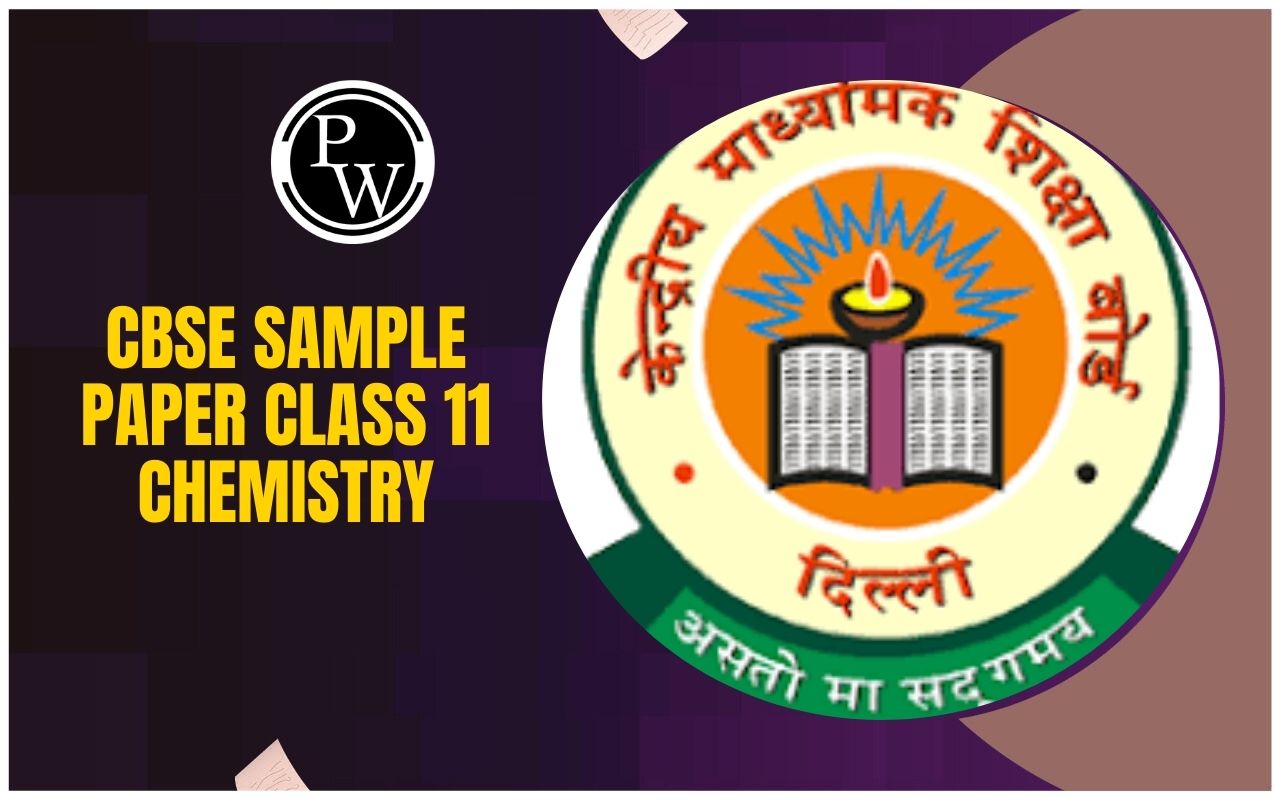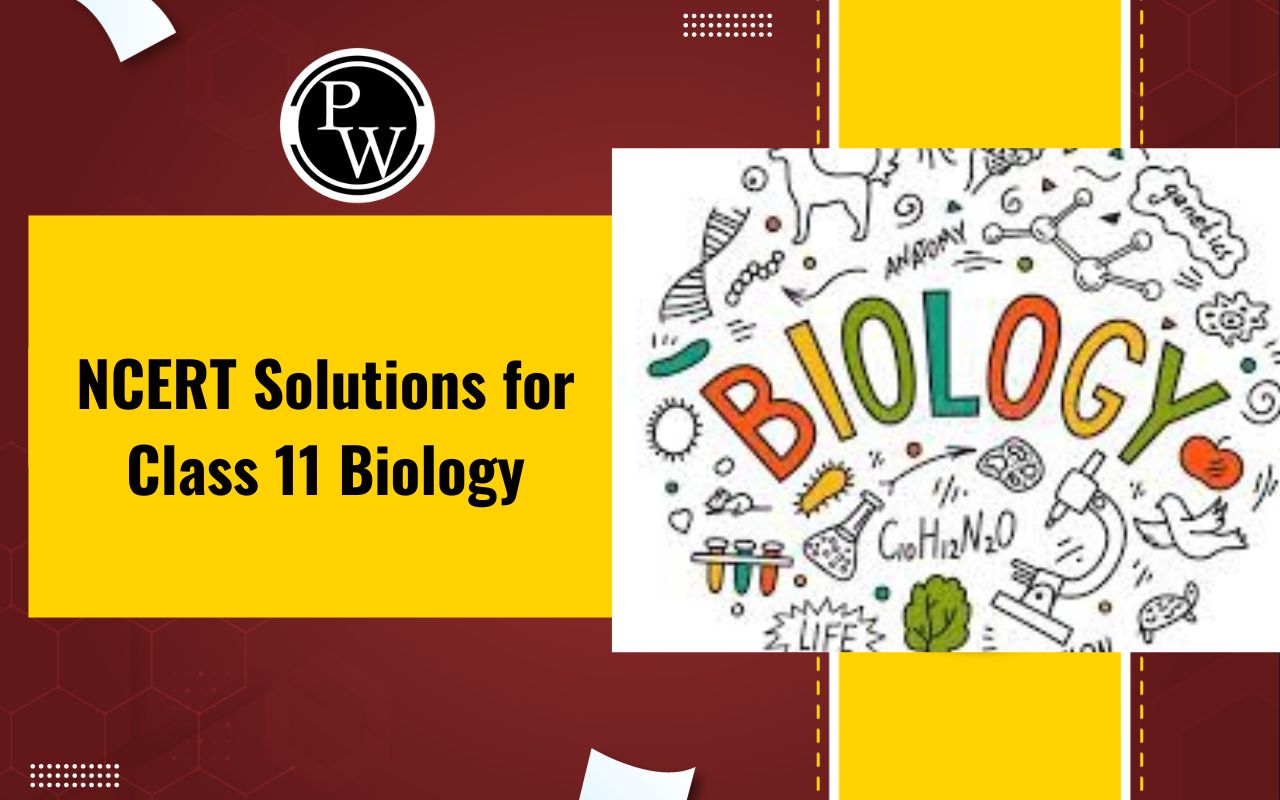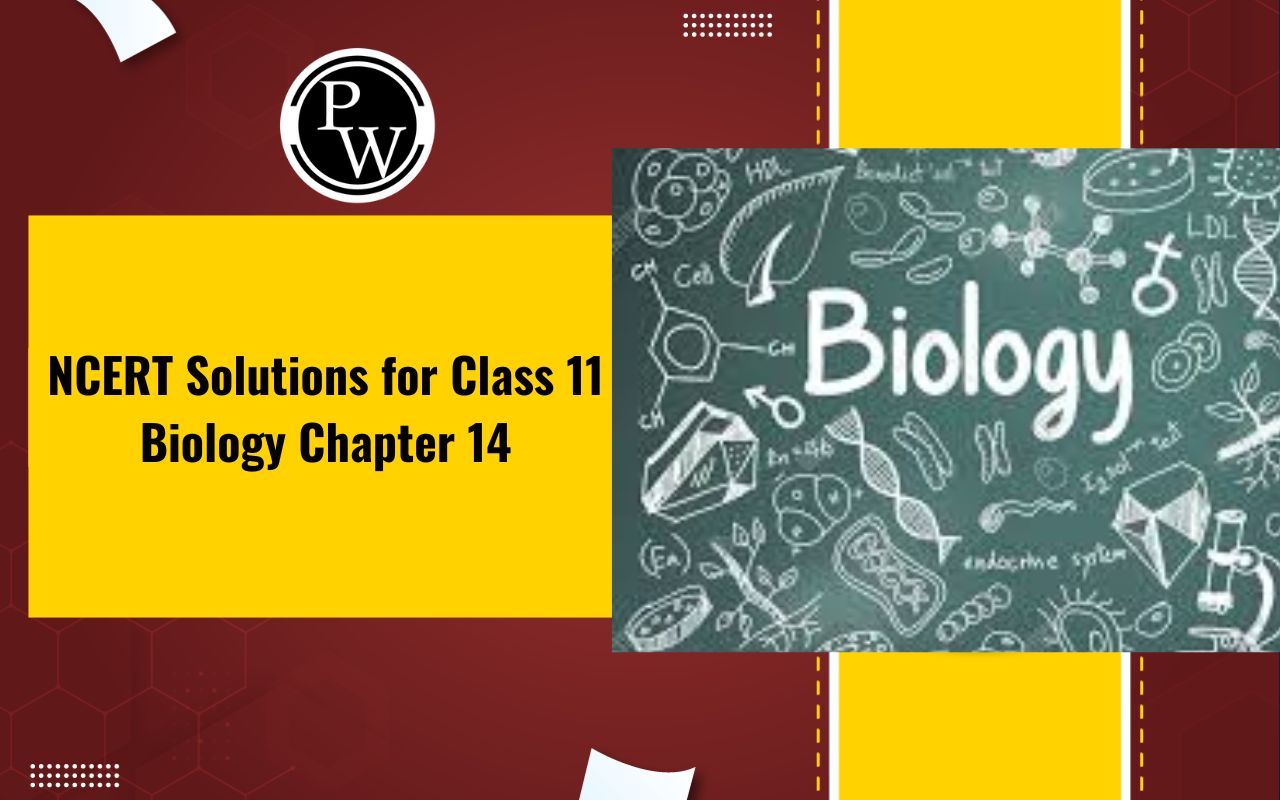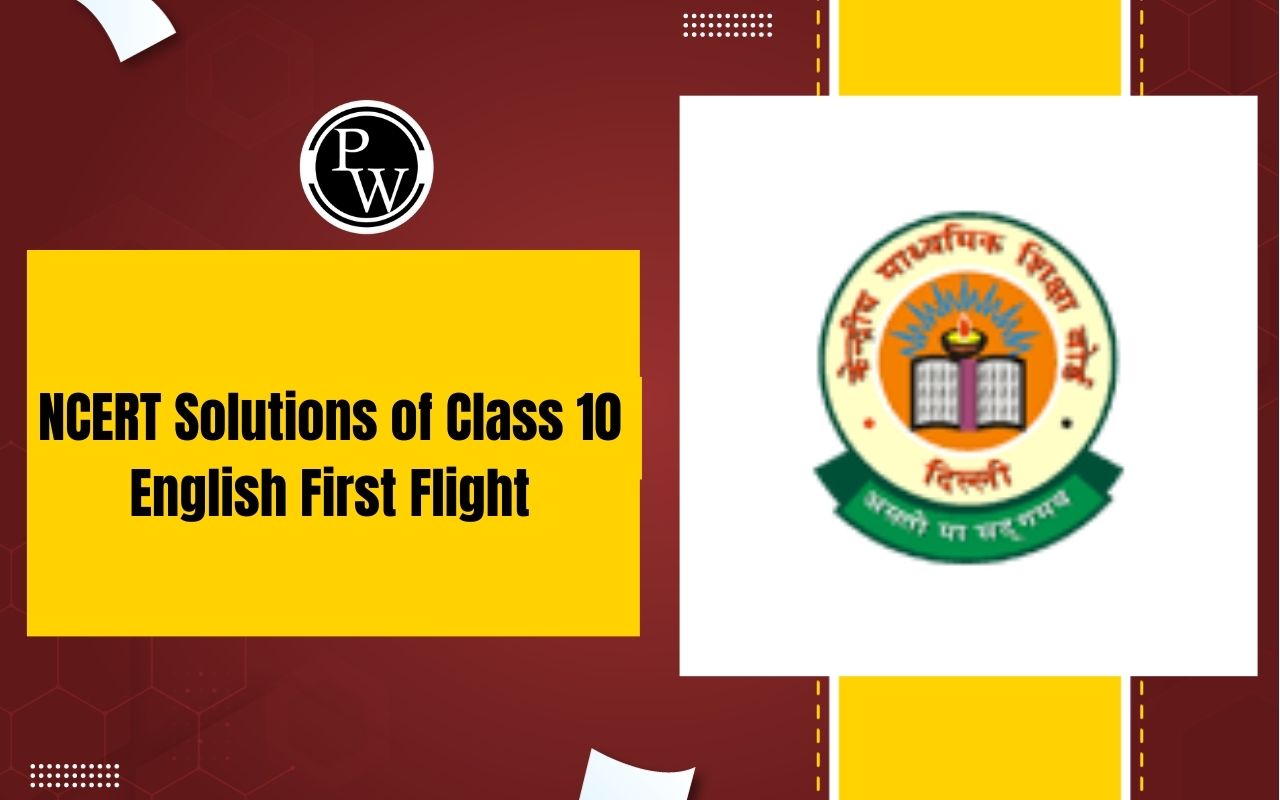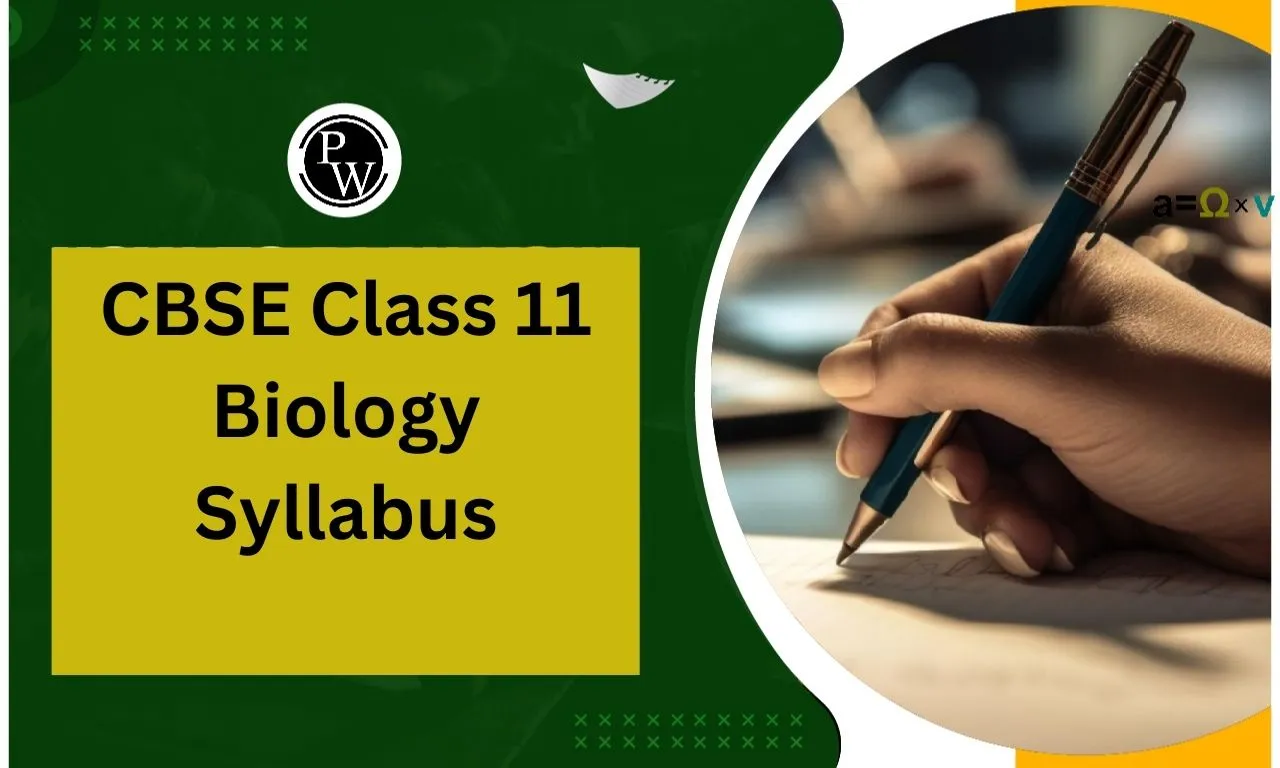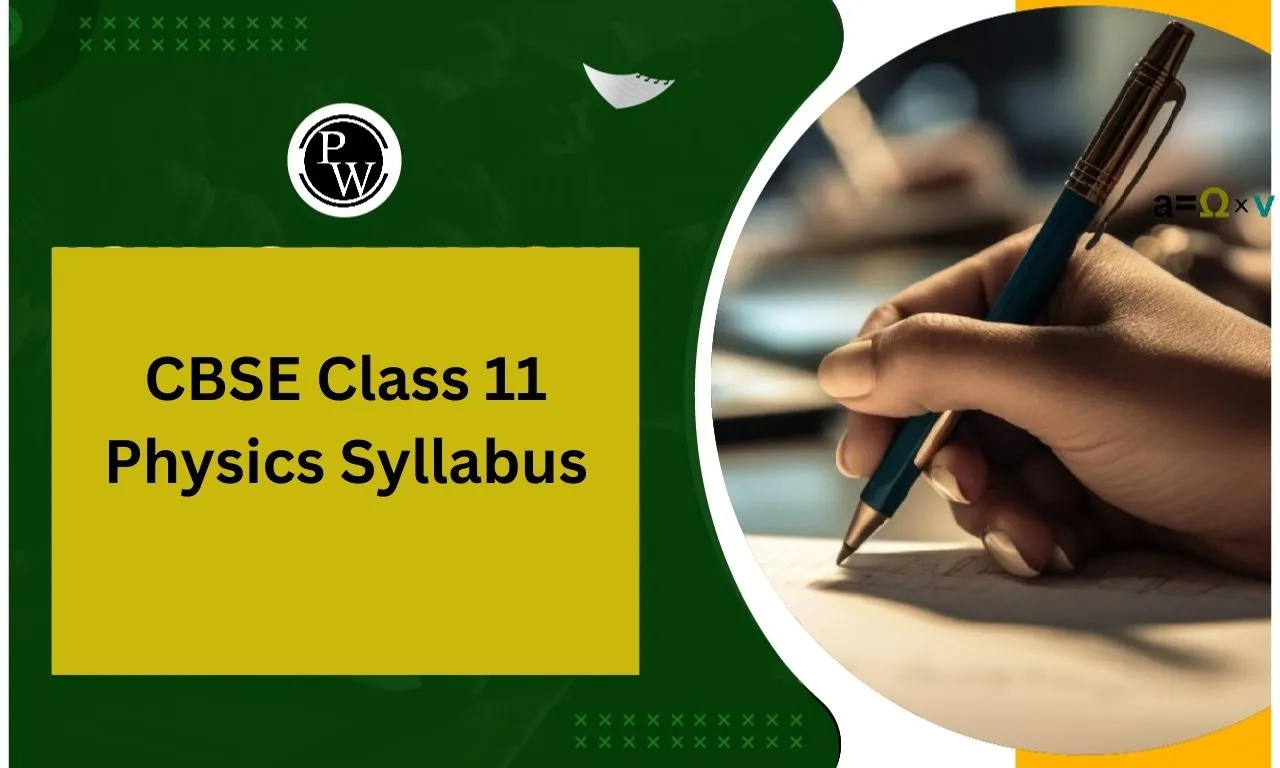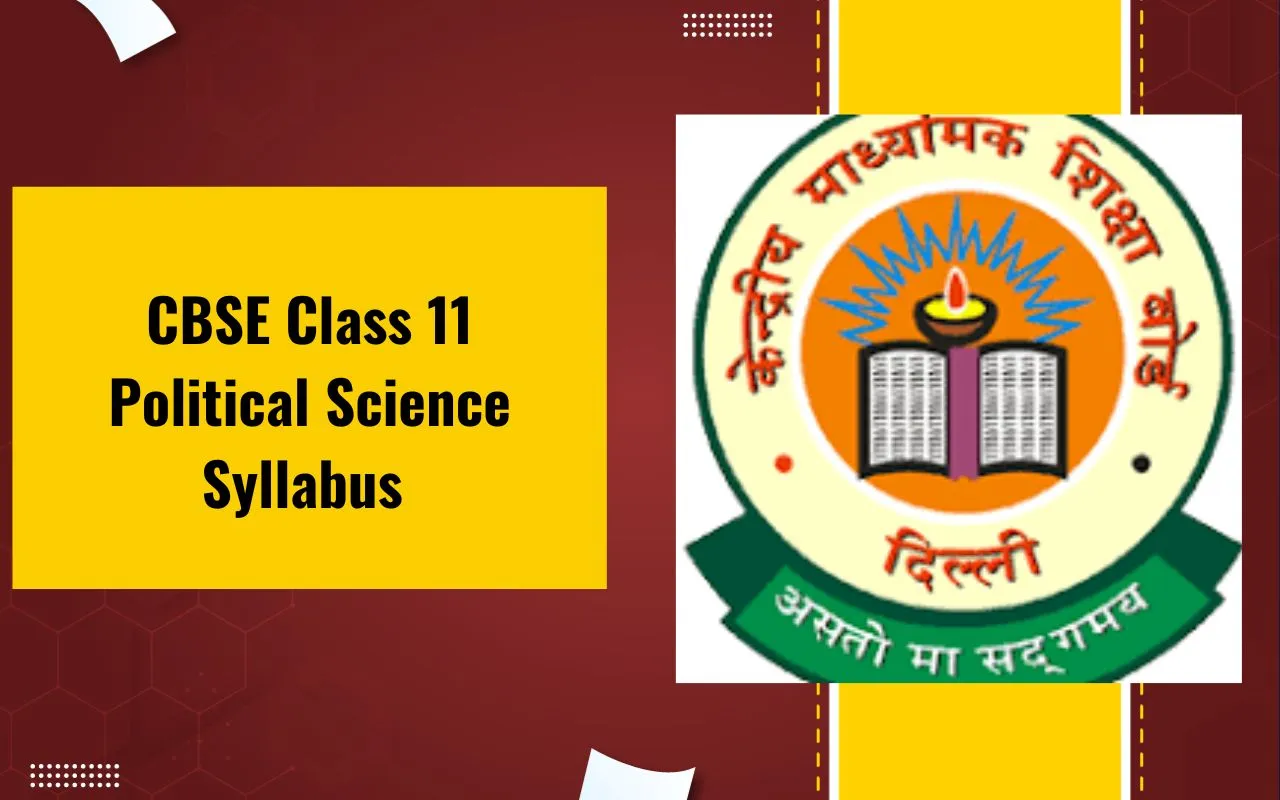
CBSE Class 11th Arts Syllabus: The Central Board of Secondary Education (CBSE) has released the Class 11th Arts Syllabus for the academic session 2024-25. This syllabus is designed to provide students with a comprehensive understanding of various subjects in the humanities and social sciences. It focuses on developing critical thinking, creativity, and analytical skills, preparing students for further studies and a wide range of career options.
Students can now access the CBSE Class 11 Arts Syllabus 2024-2025 for all subjects along with the PDF download links. The board has officially published the new syllabus on its official website cbse.nic.in
CBSE Class 11th Arts Syllabus 2024-25 PDF Download
The CBSE Class 11th Arts Syllabus for the academic session 2023-24 has been designed to cover all the essential chapters and topics. This syllabus helps students build a strong foundation for Class 12 and various competitive exams. The Arts stream provides a wide range of subjects, providing students the flexibility to choose according to their interests and career aspirations. A comprehensive understanding of the syllabus enables students to excel academically and prepare effectively for exams.
To make it easier for students to access the syllabus, CBSE has provided subject-wise PDFs that include detailed information on topics, chapters, and weightage for each subject. Students can click the links below to download the syllabus and create an organized study plan.
| Subjects | Download Links |
|---|---|
| CBSE Syllabus for History | Download PDF |
| CBSE Syllabus for Geography | Download PDF |
| CBSE Syllabus for Political Science | Download PDF |
| CBSE Syllabus for Economics | Download PDF |
| CBSE Syllabus for Home Science | Download PDF |
| CBSE Syllabus for English Elective | Download PDF |
| CBSE Syllabus for Sociology | Download PDF |
| CBSE Syllabus for Psychology | Download PDF |
| CBSE Syllabus for Legal Studies | Download PDF |
| CBSE Syllabus for Fine Arts | Download PDF |
CBSE Class 11 Arts Syllabus 2024-25 (All-Subjects)
The CBSE Class 11 Arts Syllabus for the academic year 2024-25 is structured to provide students with an in-depth understanding of humanities and social sciences. The syllabus covers essential topics and chapters across various subjects, including History, Geography, Political Science, Economics, Sociology, and Psychology . This curriculum is designed to develop critical thinking, analytical skills, and creativity, preparing students for higher studies and competitive exams.
Below is a detailed overview of the subject-wise syllabus for the Arts stream:
CBSE Class 11 English Syllabus 2024-25
The CBSE Class 11 English Syllabus for the academic year 2024-25 focuses on improving students' language proficiency, reading comprehension, and writing skills. The syllabus is divided into two sections: English Core and English Elective, with a strong emphasis on literature, grammar, and effective communication.
| CBSE Class 11 English Syllabus 2024-25 (Core) | ||
| Section | Particulars | Marks |
| Reading Comprehension(Section A) |
|
26 |
| Creative Writing Skills(Section B) |
|
23 |
| Literature Text Books and Supplementary Reading Texts(Section C) |
This section will have a variety of assessment items including Multiple Choice Questions, Objective type questions, Short Answer Type Questions, and Long Answer Type Questions
|
31 |
| Total Marks | 80 | |
| Assessment of listening and speaking Skills | 10 | |
| Project Work | 10 | |
| Grand Total | 100 | |
CBSE Class 11 History Syllabus 2024-2025
The CBSE Class 11 History Syllabus for the academic year 2024-25 is created to help students understand the evolution of human civilization, cultural transformations, and major historical events. It includes key themes that trace the journey of societies from ancient times to the modern era, fostering critical thinking and analytical skills.
| Section | Theme/Title | Periods | Marks |
|---|---|---|---|
| I. Early Societies | - Writing and City Life | 25 | 10 |
| II. Empires | - An Empire Across Three Continents - Nomadic Empires | 45 | 20 |
| III. Changing Traditions | - The Three Orders - Changing Cultural Traditions | 45 | 20 |
| IV. Towards Modernisation | - Displacing Indigenous Peoples - Paths to Modernisation | 60 | 25 |
| Map Work | Based on Related Themes | 15 | 05 |
| Total | 190 | 80 | |
| Project Work | 20 |
CBSE Class 11 Geography Syllabus 2024-2025
The CBSE Class 11 Geography Syllabus for the academic session 2024-25 has been designed to provide students with a detailed understanding of the Earth’s physical and human environment. Divided into two key textbooks Fundamentals of Physical Geography and India: Physical Environment the syllabus also includes a detailed practical component to enhance map-reading and geographical analysis skills. Below is the detailed syllabus, including the course structure and marks distribution.
| Unit | Topics | Periods | Weightage (Marks) |
|---|---|---|---|
| Fundamentals of Physical Geography | |||
| Unit I: Geography as a Discipline | - Geography as a Discipline | 5 | 3 |
| Unit II: The Earth | - Origin and Evolution of the Earth | 6 | 9 |
| - Interior of the Earth | 6 | ||
| - Distribution of Oceans and Continents | 5 | ||
| Unit III: Landforms | - Geomorphic Processes | 9 | 6 |
| - Landforms and Their Evolution | 9 | ||
| Unit IV: Climate | - Composition and Structure of the Atmosphere | 3 | 8 |
| - Solar Radiation, Heat Balance, and Temperature | 7 | ||
| - Atmospheric Circulation and Weather Systems | 7 | ||
| - Water in the Atmosphere | 4 | ||
| - World Climate and Climate Change (Project) | 5 | ||
| Unit V: Water (Oceans) | - Oceans and Their Movements | 6 | 4 |
| Unit VI: Life on Earth | - Biodiversity and Conservation (Project) | 4 | |
| Map Work | Related Themes | 5 | 5 |
| India: Physical Environment | |||
| Unit I: Introduction | - India’s Location | 5 | 5 |
| Unit II: Physiography | - Structure and Physiography | 18 | 13 |
| - Drainage Systems | 14 | ||
| Unit III: Climate, Vegetation, and Soils | - Climate | 16 | 12 |
| - Natural Vegetation | 14 | ||
| Unit IV: Natural Hazards and Disasters | - Causes, Consequences, and Management (Project) | 6 | |
| Map Work | Locating and Labelling of Key Features | 5 | 5 |
| Total | 78 | 35 |
CBSE Class 11 Political Science Syllabus 2024-2025
The CBSE Class 11 Political Science Syllabus for the academic year 2024-2025 provide a comprehensive understanding of political systems, both at the national and international levels. The syllabus is divided into Part A: Contemporary World Politics and Part B: Political Theory, providing a thorough exploration of key political events, ideologies, and the Indian Constitution. Students are also introduced to crucial topics in global and Indian politics, empowering them with knowledge to analyze and interpret the political landscape.
This syllabus is designed to enhance students' understanding of political structures, governance, and their own roles as active citizens. Below is a detailed breakdown of the Class 11 Political Science syllabus, including units, chapters, and marks distribution.
|
Chapter No.
|
Chapter Name
|
No. of Periods
|
Marks Allotted
|
|
PART A- INDIAN CONSTITUTION AT WORK
|
|||
|
1
|
Constitution: Why and How?
|
12
|
8
|
|
2
|
Rights in the Indian Constitution
|
8
|
|
|
3
|
Election and Representation
|
14
|
6
|
|
4
|
Executive
|
14
|
12
|
|
5
|
Legislature
|
14
|
|
|
6
|
Judiciary
|
14
|
|
|
7
|
Federalism
|
14
|
6
|
|
8
|
Local Governments
|
10
|
4
|
|
9
|
Constitution as a Living Document
|
6
|
4
|
|
10
|
The Philosophy of the Constitution
|
6
|
|
|
|
No. of periods & marks allotted to Indian Constitution at Work
|
112
|
40
|
|
PART B- POLITICAL THEORY
|
|||
|
1
|
Political Theory: An Introduction
|
8
|
4
|
|
2
|
Freedom
|
10
|
12
|
|
3
|
Equality
|
12
|
|
|
4
|
Social Justice
|
12
|
6
|
|
5
|
Rights
|
14
|
4
|
|
6
|
Citizenship
|
12
|
8
|
|
7
|
Nationalism
|
15
|
|
|
8
|
Secularism
|
16
|
6
|
|
|
Total
|
211
|
80
|
CBSE Class 11th Sociology Syllabus 2024-25
The CBSE Class 11 Sociology Syllabus for the academic session 2024-25 provide students a detailed understanding of social structures, relationships, and institutions. The syllabus is divided into two main parts: Part A: Introduction to Sociology and Part B: Understanding Indian Society. By studying this syllabus, students develop critical thinking and analytical skills, preparing them for higher studies and a deeper understanding of societal dynamics.
|
Unit
|
Title
|
No. of periods
|
Marks
|
|
A
|
Introducing Sociology
|
||
|
1. Sociology, Society and its relationship with other Social Science disciplines
|
18
|
10
|
|
|
2. Terms, concepts and their use in Sociology
|
16
|
10
|
|
|
3. Understanding Social Institutions
|
20
|
12
|
|
|
4. Culture and Socialization
|
16
|
12
|
|
|
Total
|
70
|
44
|
|
|
B
|
Understanding Society
|
||
|
7. Social Change and Social order in Rural and Urban Society
|
20
|
12
|
|
|
9. Introducing Western Sociologists
|
20
|
12
|
|
|
10. Indian Sociologists
|
20
|
12
|
|
|
Total
|
60
|
36
|
|
|
Total
|
130
|
80
|
|
|
Project Work
|
40
|
20
|
|
CBSE Class 11th Psychology Syllabus 2024-25
The CBSE Class 11 Psychology Syllabus 2024-25 is designed to introduce students to the fascinating field of psychology, focusing on understanding human behavior, mental processes, and the factors influencing them. The syllabus is structured to provide a blend of theoretical concepts and practical applications, enabling students to develop both critical thinking and analytical skills. It also lays a strong foundation for further studies in psychology at higher levels.
|
Unit
|
Title
|
No. of periods
|
Marks
|
|
What is Psychology?
|
27
|
11
|
|
|
Methods of Enquiry in Psychology
|
32
|
13
|
|
|
Human Development
|
26
|
11
|
|
|
Sensory, Attentional and Perceptual Processes
|
18
|
8
|
|
|
Learning
|
20
|
9
|
|
|
Human Memory
|
19
|
8
|
|
|
Thinking
|
14
|
5
|
|
|
Motivation and Emotion
|
14
|
5
|
|
|
Total
|
170
|
70
|
|
CBSE Class 11 Home Science Syllabus 2024-2025
The CBSE Class 11 Home Science Syllabus 2024-25 is created to provide students with an understanding of the basics of home management, nutrition, and child development. The syllabus covers various aspects of daily life, such as food and nutrition, health and hygiene, resource management, and family dynamics.
Students will learn about the importance of a balanced diet, the impact of food choices on health, and the role of family and community in personal and social development. The course also includes practical work, such as cooking, budgeting, and conducting surveys, helping students apply theoretical knowledge to real-life situations. This syllabus aims to equip students with the skills and knowledge necessary for managing everyday challenges in a home and community setting.
|
Unit No
|
Unit Name
|
No of Periods
|
Marks Weightage
|
|
1
|
Introduction to Home Science
|
04
|
02
|
|
2
|
Understanding oneself: Adolescence
|
35
|
20
|
|
3
|
Understanding Family, Community and Society
|
35
|
15
|
|
4
|
Childhood
|
24
|
15
|
|
5
|
Adulthood
|
28
|
18
|
CBSE Class 11 Fine Arts Syllabus 2024-2025
The CBSE Class 11 Fine Arts Syllabus for 2024-2025 is designed to encourage creativity and artistic expression among students. It covers a range of topics that help students explore various forms of art, including painting, sculpture, and the appreciation of art. The syllabus focuses on building skills in different artistic techniques, understanding art history, and developing an appreciation for cultural heritage.
|
No
|
Name
|
No of Periods
|
Marks Weightage
|
|
1
|
Applied Art
- Drawing
- Lettering and layout
- Portfolio Assessment
|
50
50
48
|
25
25
20
|
|
2
|
Sculpture
|
50
50
48
|
20
20
20
|
|
3
|
Graphics
|
100
48
|
50
20
|
|
4
|
Painting
|
100
48
|
50
20
|
CBSE Class 11 Economics Syllabus 2024-25
The CBSE class 11 Economics syllabus is divided into two parts: Statistics for Economics and Introductory Microeconomics. The question paper for Economics carries 80 marks, with an additional 20 marks allocated for project work.
| Chapters | Marks |
| Part A: Statistics for Economics | |
| Introduction | 40 |
| Collection, Organisation and Presentation of Data | |
| Statistical Tools and Interpretation | |
| Part B: Introductory Microeconomics | |
| Introduction | 40 |
| Consumer’s Equilibrium and Demand | |
| Producer Behaviour and Supply | |
| Forms of Market and Price Determination under perfect | |
| competition with simple applications | |
| Project Work | 20 |
| Total | 100 |
CBSE Class 11th Arts Syllabus Exam Pattern 2024-25
The CBSE Exam Pattern for Class 11th Arts the academic year 2024-25 is created to assess students' theoretical knowledge, practical understanding, and application of concepts in various subjects within the Arts stream. The pattern includes both theory and practical assessments , with different weightages based on the subject.
Theory Exam Pattern : Total Marks : The theory exam for each subject is 70-80 marks , depending on the subject.
Types of Questions :
- Objective Type : Multiple-choice questions (MCQs), fill-in-the-blanks, and matching-type questions.
- Short Answer Type : Questions that require brief answers, including definitions, explanations, and examples.
- Long Answer Type : Questions that test in-depth knowledge and require detailed explanations, including essay-type questions and critical analysis.
- Application-Based Questions : These may involve case studies or real-life examples requiring students to apply theoretical knowledge to practical situations.
- Duration : The duration of theory exams for each subject is usually 3 hours .
Practical Exam/Project Work:
Total Marks : Practical exams or project work contribute 20-30 marks , depending on the subject.
Types of Practical Assessments :
- Project Work : Students are assessed on the projects they complete as part of their internal assessments. This includes research, presentations, and case studies in subjects like Sociology , Psychology , Fine Arts , and Home Science .
- Experiments and Practical Applications : For subjects like Geography and Psychology , students are tested on experiments, data collection, and analysis.
Viva : Some subjects may also include an oral examination (viva) based on the practical or project work, where students explain their work and findings.
Marks Distribution for Major Subjects
| Subject | Theory Marks | Practical/Project Marks | Total Marks |
|---|---|---|---|
| History | 80 | 20 | 100 |
| Geography | 70 | 30 | 100 |
| Political Science | 80 | 20 | 100 |
| Economics | 80 | 20 | 100 |
| Sociology | 80 | 20 | 100 |
| Psychology | 70 | 30 | 100 |
| Fine Arts | 70 | 30 | 100 |
| Home Science | 70 | 30 | 100 |
Internal Assessment:
- Project Work : 10-20 marks (depending on the subject) for completing and presenting projects.
- Periodic Tests : Schools may conduct periodic tests to assess students' understanding throughout the year.
- Assignments : Students may also be assessed on assignments related to the subjects, contributing to internal assessment marks.
Steps To Download CBSE Class 11th Arts Syllabus
To download the CBSE Class 11th Arts Syllabus for the academic session 2024-25 follow these simple steps- Visit the Official CBSE Website: Go to the official website of the Central Board of Secondary Education (CBSE) at www.cbse.gov.in .
- Navigate to the Academic Section: On the homepage, find and click on the Academic section, usually listed under the "Curriculum" or "Syllabus" tab.
- Choose the Syllabus for 2024-2025: Look for the link titled Syllabus for Class 11 or Class 11 Syllabus for 2024-25 . Click on this link to access the list of available syllabi.
- Select Arts Stream: Scroll through the list of subjects and locate Arts or specific subjects like History, Geography, Economics , etc., as per your interest.
- Download the Syllabus: Click on the relevant subject link to open the syllabus PDF. Once the syllabus opens, there will be an option to download it in PDF format. Click Download or Save As to store it on your device.
CBSE Class 11th Arts Syllabus FAQs
Q.1 : Is project work mandatory for Class 11 Arts?
Q.2 : What is the exam pattern for CBSE Class 11th Arts subjects?
Q.3 : How many marks does the CBSE Class 11th Arts Syllabus carry?
Q.4 : Is the CBSE Class 11 Arts 2024-2025 syllabus released?


